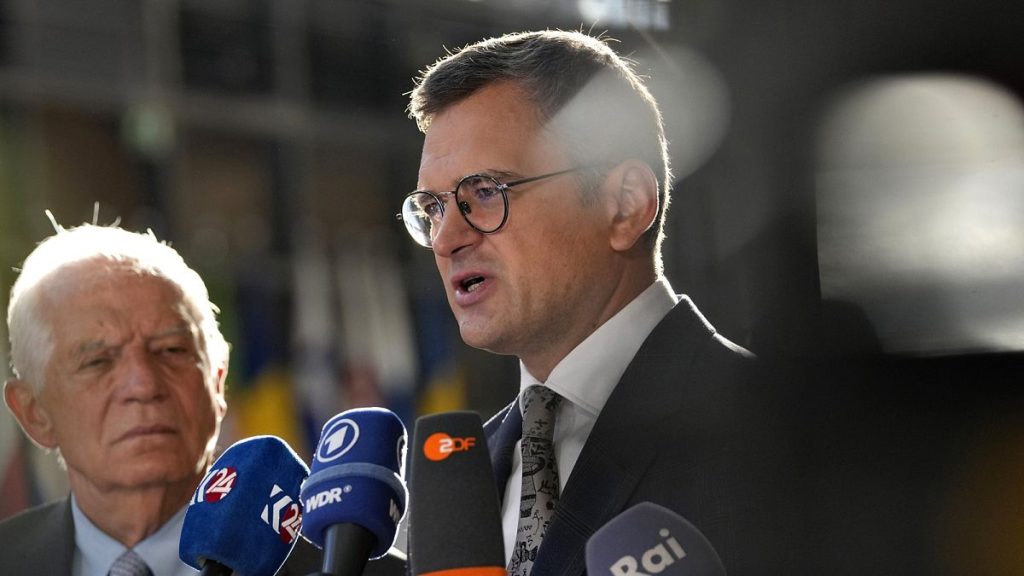Dmytro Kuleba, Ukraine’s Foreign Affairs Minister, called on EU countries to allow Ukraine to use donated weapons to strike deep into Russian territory during a meeting of EU foreign ministers in Brussels. The urgency of the situation was emphasized by the ongoing Kursk incursion, marking the first time since World War II that Russian territory has been occupied by foreign forces. As the conflict continues to escalate, there is a pressing need for bold decisions to be made to support Ukraine in protecting its cities and children from Russian aggression.
The issue of lifting restrictions on weaponry has been a topic of discussion within the EU for months, with some member states granting permission for Ukraine to use donated weapons while others have not. President Volodymyr Zelenskyy had initially requested this support during his visit to Brussels in May. Some countries, such as the Netherlands, Sweden, Denmark, Finland, Poland, and the Baltics, have agreed to provide assistance, but there is not yet a universal consensus among EU member states. The situation is further complicated by Germany’s refusal to supply Taurus cruise missiles, which Ukraine is lobbying for.
Josep Borrell, the EU’s foreign policy chief, expressed full support for lifting restrictions on Western-supplied weapons in accordance with international law to enable Ukraine’s right to self-defense. He highlighted Russia’s aggressive intentions to destroy Ukraine’s electricity system and inflict further damage on the country during the upcoming winter. The Biden administration in the United States has maintained limits on long-range ballistic missiles to prevent an escalation of the conflict, while the United Kingdom is awaiting American approval before providing further support.
During the meeting of foreign ministers, Kuleba also raised concerns about the gap between the announcement of military supplies and the actual delivery of that assistance, which is hindering Ukraine’s war planning efforts. The delays in aid delivery are seen as excessively long and in need of improvement. The EU and its member states have pledged €39 billion in military support for Ukraine since the start of the invasion, but it remains unclear how much of this aid has actually reached the war-torn country. Last month, Brussels transferred €1.5 billion to Kyiv through a unique scheme based on Russia’s immobilized assets.
Lithuania’s Gabrielius Landsbergis criticized North Korea and Iran for consistently supplying Moscow with the resources needed to continue the invasion and urged EU countries to step up their support for Ukraine. He highlighted the lack of Patriot systems, air defense systems that Ukraine desperately needs to defend against Russia’s bombardment, as a significant issue. Landsbergis called for a reassessment of the situation, questioning whether EU countries were taking the crisis seriously enough and advocating for greater assistance to be provided to Ukraine in its time of need.
Overall, the situation in Ukraine remains dire as the conflict with Russia continues to escalate. The need for EU countries to allow Ukraine to use donated weapons to strike deep into Russian territory is becoming increasingly urgent in order to protect Ukraine’s cities and citizens. While some member states have granted permission for such actions, others have not, leading to a lack of consensus within the EU. Moving forward, it is crucial that Western allies support Ukraine in its defense efforts and ensure the timely delivery of military aid to enable Ukraine to effectively combat Russian aggression and protect its sovereignty.













